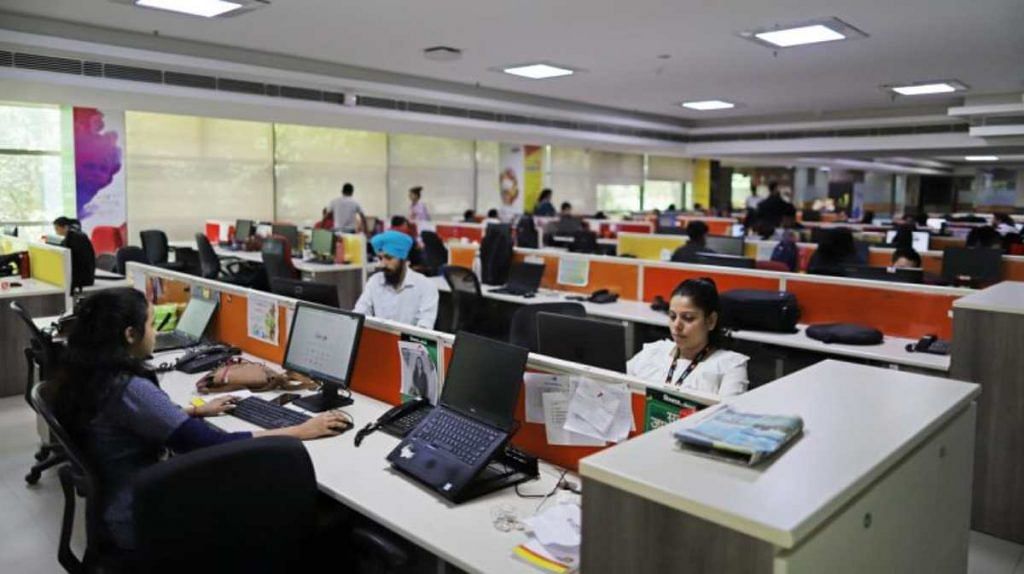New Delhi: Haryana is the richest state in the country with a population of over 50 lakh. It is also a magnet for investment from all over India and even the world. But a new law passed by the Haryana government, the State Employment of Local Candidates Bill, 2020, seems “suicidal”, said Shekhar Gupta.
In episode 695 of ‘Cut the Clutter’, ThePrint’s Editor-in-Chief explains the provisions, politics and pitfalls of the law, and how it is a ticket to self-destruction for India’s richest state by per capita income.
According to the law, 75 per cent of all jobs with a salary of Rs 50,000 a month have to be given to Haryana domiciles. Calling this move a “soother’, Gupta said, “Behind the worst kind of ideas is the worst kind of politics — the politics of survival.”
In 2019, BJP failed to win a majority in Haryana but remained the single largest party. While it was followed closely by the Congress, it was Dushyant Chautala’s Jannayak Janata Party (JJP) that won 10 seats and he became the kingmaker, reinstating BJP’s Manohar Lal Khattar as chief minister. Retaining Haryana is crucial for the BJP “because it is next door to the national capital and it holds the crucial muscle power kind of crowd that comes into any protests in Delhi,” Gupta said.
Chautala’s voter base is Jats — a section of society that is by and large estranged from the BJP and has expressed sympathy for the ongoing farmers’ protest. This has brought pressure on Chautala to leave the coalition, but so far the deputy chief minister continues to dodge any clear stand. And this is why the State Employment of Local Candidates Bill, 2020 was brought in — to act as a “soother”, explained Gupta.
Also read: How Haryana’s new ‘quota for locals’ law could unleash ‘inspector raj’ in state
What the law states
Haryana domiciles are defined as being born in the state or having lived there for 15 years. “Just when PM Modi is reforming labour laws, talking about ease of doing business, minimum government, bringing more investment — this law negates all of that,” Gupta said.
According the law, every person seeking employment for Rs 50,000 a month has to register through a portal and the employer can only hire from this portal. The law also allows for an authorised officer who will be informed of the number of Haryanvi employees in a firm by the employer. Underlining the most bizarre section of the law, Gupta said, “No legal proceedings can be brought against any officer who takes an action based on this law on any employer as long as he’s acting in good faith.”
While the law says that 75 per cent of the employees earning Rs 50,000 a month have to be from Haryana, the employer also has to make sure that not more than 10 per cent people are employed from one district. The law also allows for the employer to seek exemption from the law if the people are not well-equipped or trained, but this will go through a hierarchy of inspectors.
Gupta also underlines how this law runs afoul of several articles of the Constitution — Article 14 that ensures equality before the law, Article 16 that says no discrimination on employment based on where you’re living and Article 19 that ensures freedom to follow any profession.
Explaining how this law will destroy Haryana’s growth story, Gupta says that a salary of Rs 50,000 a month will also raise questions like is this the basic pay, leading to employment freezes.
Gupta ends by noting that Prime Minister Narendra Modi and the BJP government in Haryana, where certain districts are poised to be the Silicon Valley of India, should be creating more jobs in the state whereby more investments come in, making it that much more progressive. “I can only hope someone blows the whistle on this — we cannot wait for the courts to ultimately strike it down,” he said.
Watch the full CTC episode here:
Also read: Girls’ education is not a demand problem, it’s a supply problem — of schools, jobs, info
